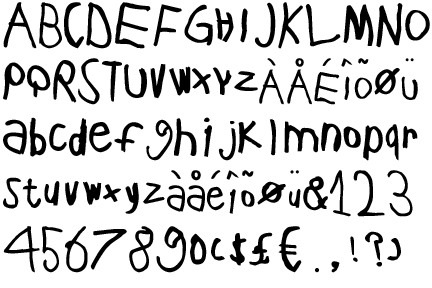First of all, get yourself a sketchbook and start drawing random shit. Better yet, try drawing things you are interested in by finding them in the world and drawing them. Plus, your sketchbook is your own reference guide, with notes and whatnot.
To get good at drawing, or anything visual, you will have to learn how to analyze reference images. Part of it is knowing what to look for, rather than mindlessly copying it. You need to know how to simplify an image into its basic form primitives (cubes, spheres, cones, cylinders) and replicate it on paper.
When you draw stick figures, you are drawing symbols, because that's all the visual information you can meaningfully reproduce. Things like perspective, form, anatomy, etc. are more like toolsets or methods to translate the super low-res gibberish in your mind's eye into something meaningful on paper.
Here are some general drawing tips:
1) Draw by moving your arm and not your wrist. Not only will you save your wrist from injury, but you will be able to draw longer strokes with more confidence.
2) Don't draw slowly and without confidence. Try not to drag your pencil slowly on the paper, as it leads to jittery lines and generally bad line quality. When you draw a line, draw the line from start point to endpoint with one fell swoop, don't stop the pencil. Try to draw with confidence, as whatever mistakes you can erase later. You need to train how to make larger arm movements with precision, and with enough practice, you can draw somewhat perfect looking lines and ellipses without a ruler. If necessary, try to air draw a line above the paper multiple times before committing it to paper.
3) When drawing from imagination, always use reference. The only reason not to use reference is if finding reference is too hard. Don't fall into the trap of admiring an artist who made an amazing drawing or painting without reference, and thinking that not using reference is something good. On the other extreme, don't rely too heavily on reference. Reference should be used to solve problems, and if you copy without understanding what you are doing, it may lead to a pretty picture, but it's not helpful in the long run.
4) Finally, draw what you want to draw, no matter how ugly it is. You have to enjoy drawing to want to get better at drawing. Don't get too obsessed with getting better and do studies all the time. Take a look at the original One Punch Man webcomic, not the redrawn manga.
It looks... less than impressive. Nevertheless, I'll bet the author had a blast writing and drawing it.
If you have any questions please ask. I can get more specific if you want, at least on the fundamentals.









